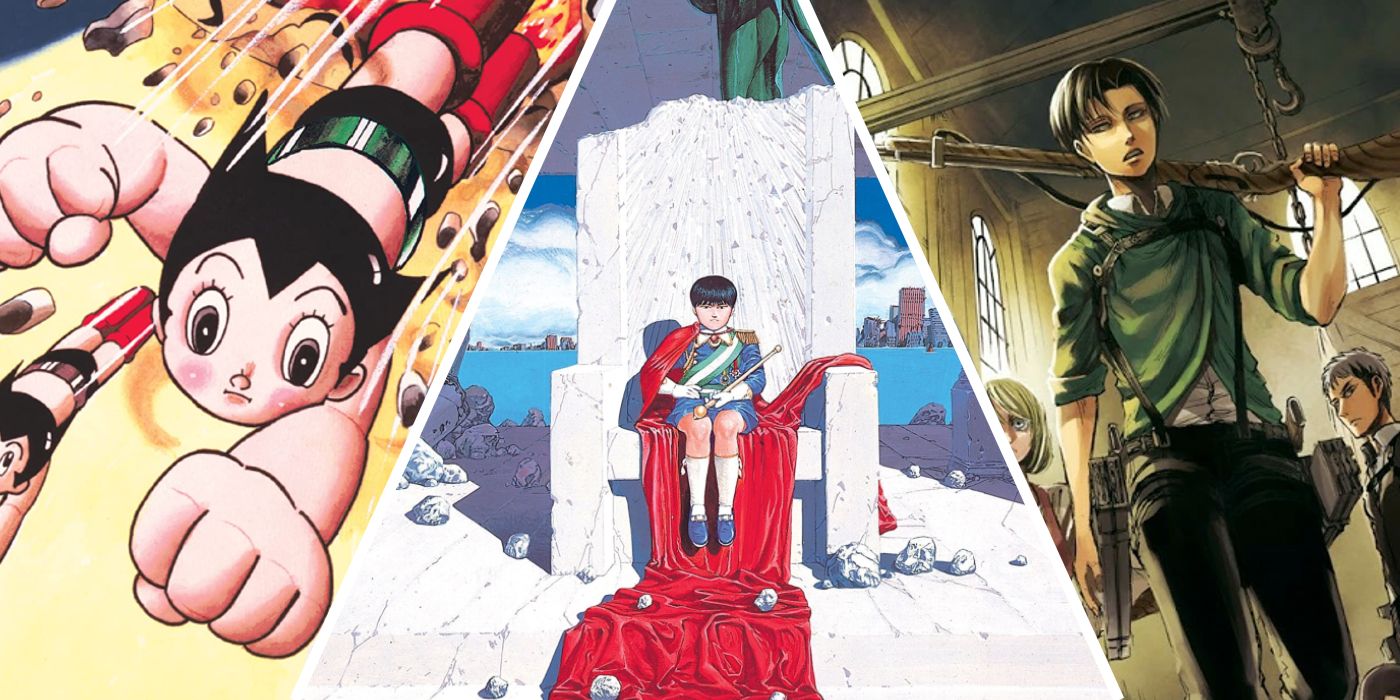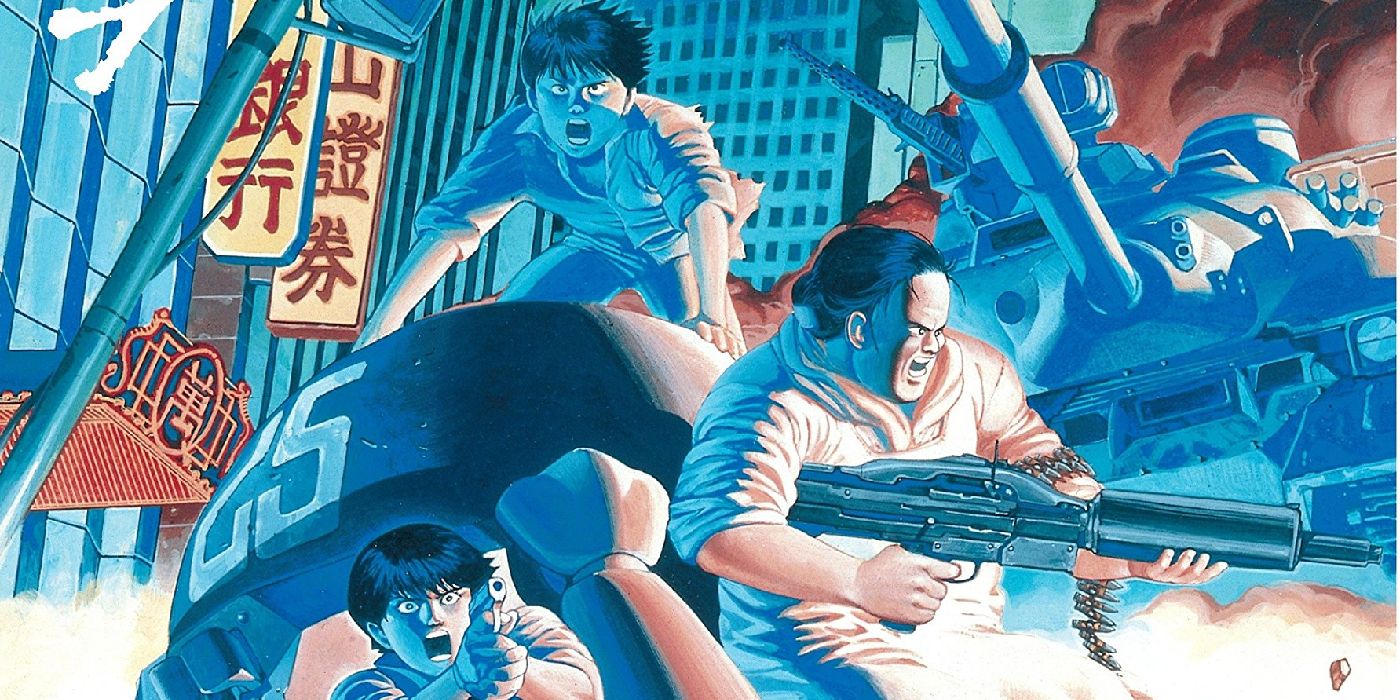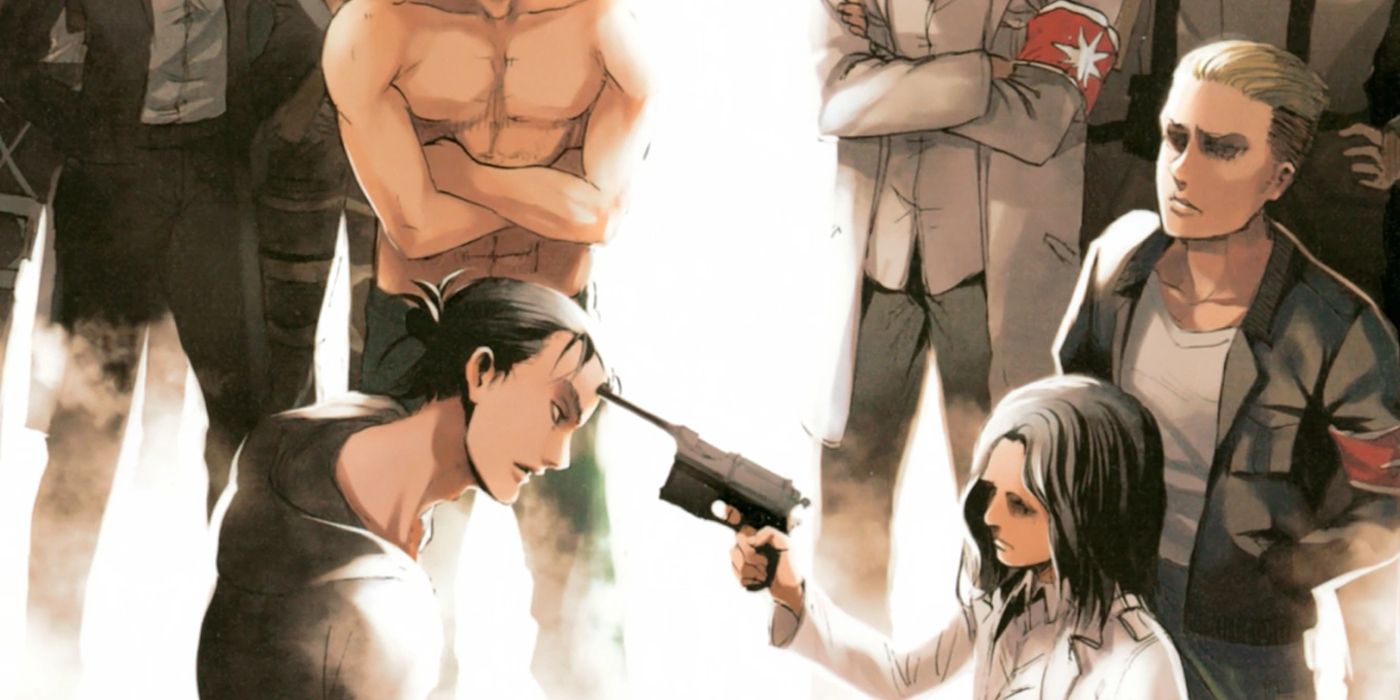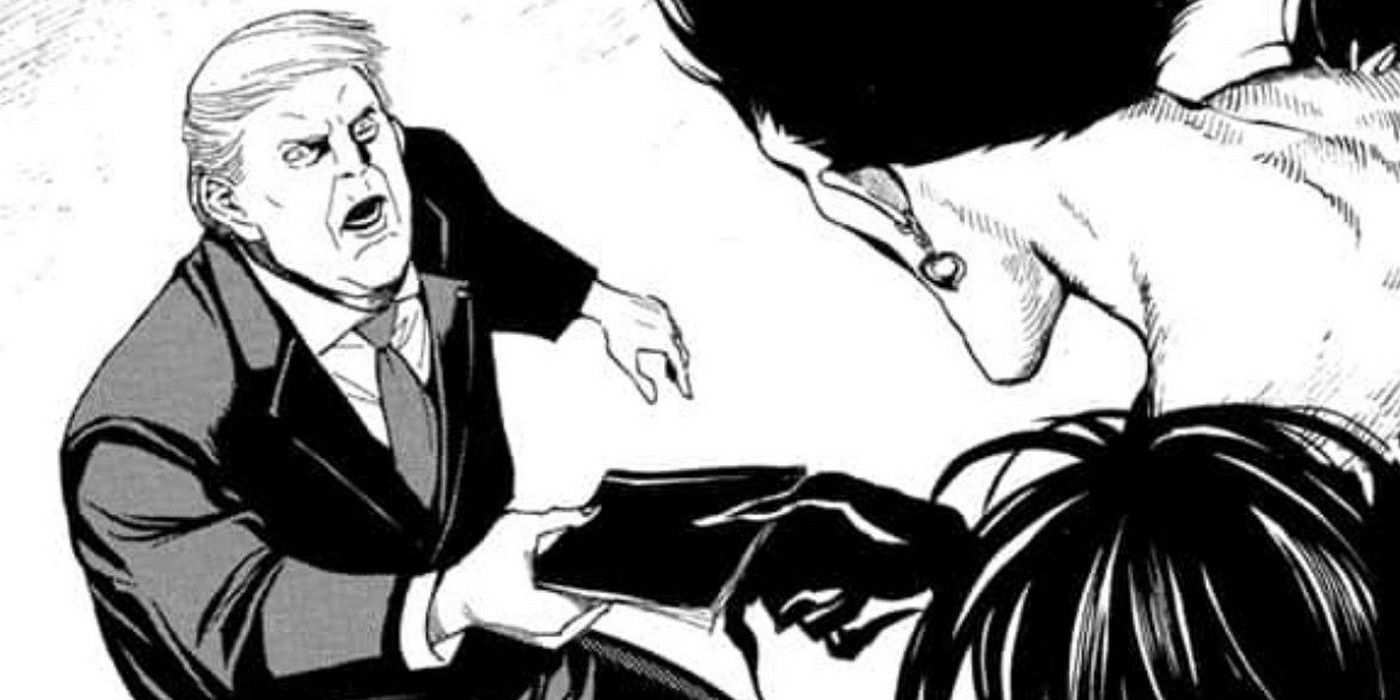When Marvel Comics introduced a version of MODOK modeled after then-presidential candidate Donald Trump, many were quick to contrast this to the perceived apolitical nature of manga. A common refrain among some western manga fans is that the medium's success is tied to its lack of apparent political messages. Despite this, nothing could be further from the truth. A closer look at many of Japan's most influential manga reveals a deep well of political themes, messages, and imagery.
Far from a new development, politics have been present in manga since the medium's earliest days. With classics like Kimba the White Lion, Blackjack, and Phoenix Osamu Tezuka is widely regarded as the father of manga. However, it's Astro Boy that is truly his defining work. Somehow combining the cute cartoons of Disney and the brave heroics of American superheroes, Astro Boy is considered one of the very first modern manga. It was also unapologetically political. Known for being anti-war and pro-environment, Tezuka weaved these themes into Astro Boy. For manga fans who think these themes are too subtle or too general to really qualify as 'political,' one story should remove all doubt. 1969's The Angel of Vietnam by Tezuka sees Astro protecting a Vietnamese village from American forces during the height of America's involvement in the Vietnam War.
One well-known creator clearly influenced by the work of Tezuka is acclaimed director Hayao Miyazaki. Though most western readers know him for his breathtaking films, he was also a mangaka for quite some time. His magnum opus, Nausicaä: Of the Valley of the Wind contains many of the themes which have defined Miyazaki's career. Much like Tezuka, Miyazki used the medium of manga to portray the futility of war and the importance of respecting the environment. The series follows the eponymous character in a post-apocalyptic world destroyed by pollution. Far from something easy to ignore, the themes of environmentalism and humanity's folly in trying to control the environment are absolutely vital to the story. To ignore the dire political message of Nausicaä is basically to not engage with the story at all.
In a similar vein are the politics of cyberpunk classic, Akira. The manga by Katsuhiro Otomo was a critique of Japanese society in the 1980s. The manga's setting, Neo-Tokyo, is a city overrun in equal measures with gang violence and a dangerously militarized police force. A key plot point in the manga is the Japanese government's building of an Olympic Stadium. Given the absurd levels of poverty and destitution the people of Neo-Tokyo face, the obvious conclusion readers are meant to draw is that the stadium is a waste of money. Beyond that jab at the differing priorities of a government and its people, Akira also overtly tackles hot-button issues such as youth violence, economic inequality, and police brutality.
All three of these classic manga used then-current events and the Japanese political landscape of their time to craft impressive and epic stories that are still influencing mangaka to this day. Looking more towards the present though, it should be equally obvious that manga creators are still using politics and social change to inform their works.
While some critics of the western comic industry have viewed the recent inclusion of more LGBTQ characters as a reason for declining sales of traditional superhero comics, this is odd considering that the manga industry, while far from perfect, is often on par or even ahead of the curve in including characters with a wide variety of sexualities and genders. In 1994 Sailor Moon famously premiered a heroic lesbian couple in Sailor Uranus and Sailor Neptune. Ghost in the Shell's Motoko Kusanagi has either been a lesbian or at least bisexual since her first appearance in 1989. Hunter x Hunter features an entire arc focussing on series co-protagonist Killua reconnecting with his trans sister, Alluka. One Piece just recently introduced Yamato, who was assigned female at birth but uses male pronouns which are respected by the main cast. Attack on Titan also features several prominent LGBTQ characters including the non-binary Hange Zoë and the lesbian couple of Ymir and Christa.
Attack on Titan alone should be enough to dispel any notions that manga is some mythical apolitical medium. The hit series prominently features themes of nationalism, militarization, and how members of oppressed groups become radicalized by their oppressors. Given Japan's complex relationship to World War II and Nazi Germany, the German-inspired setting and constant references to WWII imagery throughout Attack on Titan are inherently political in nature, though what the series is using these images to say is still a hotly debated topic.
Beyond the blatant politics of Attack on Titan though, the last two decades of manga have been flush with political theming and imagery. Considering the middle-eastern flare, it's difficult not to see Fullmetal Alchemist's Ishbalan conflict as analogous to the War in Iraq. One-Punch Man is about the hollow and unfulfilling nature of a work focussed society. My Hero Academia explores the pressure put on young adults to be exceptional and how that pressure can ultimately hurt and alienate those who struggle to live up to it. Demon Slayer uses its Taishō era setting to examine the impact of modernization and how people adjust to a rapidly changing world.
Though some of these political messages and themes are easy to ignore for less politically savvy readers, other manga are much more direct. While some readers were complaining about Marvel turning a politician into a supervillain... Death Note was preparing to do the exact same thing with the exact same politician. The series' creators returned to the world of Death Note with The A-Kira Story, a one-shot that prominently featured a blatant parody of Trump receiving the titular Death Note and being too cowardly to use it.
All of these examples should be more than enough to display that manga is just as political as anything published by Marvel or DC. It's important to note though that even series with less obvious politics are still political. Works like Dragon Ball might not be so forward with their politics, but they still exist in a political context and still convey political messages, whether intentional or not. For better or worse, all media is political in that all media reflects the values and beliefs of the culture which created it. These themes are woven into the very DNA of their series. Saying that manga isn't political isn't just blatantly wrong, it's disrespectful to the rich and textured worlds created by Japan's greatest mangaka.




